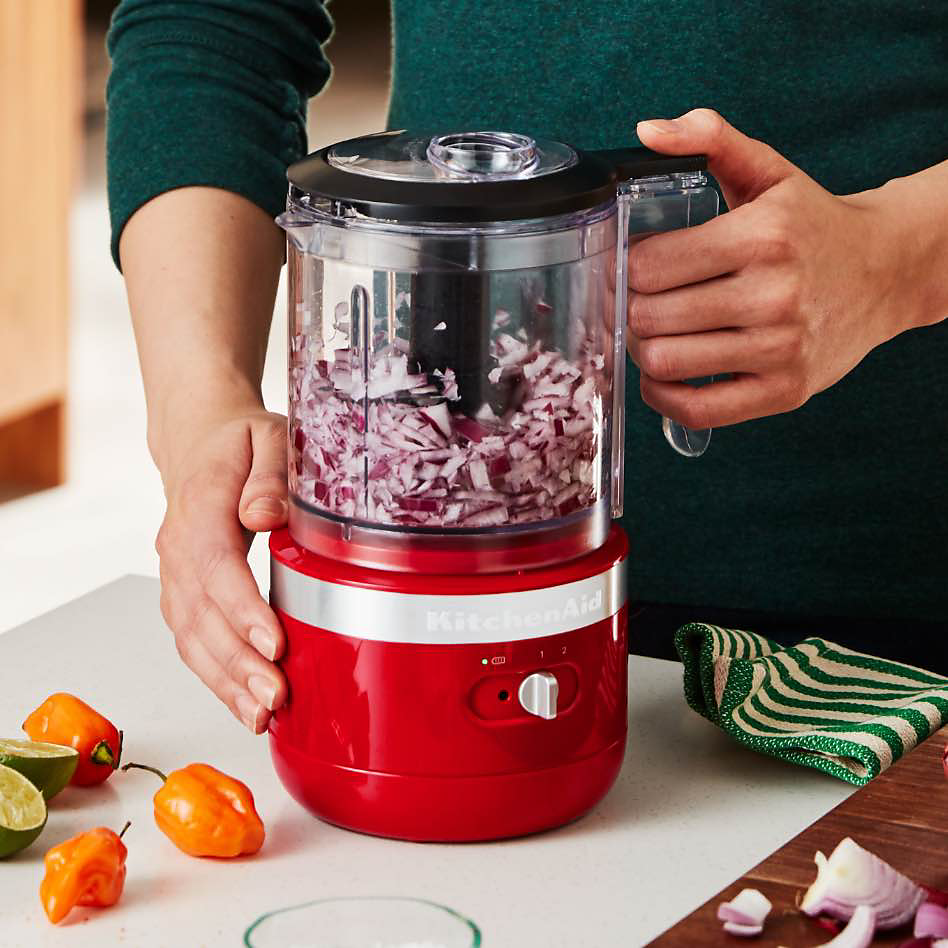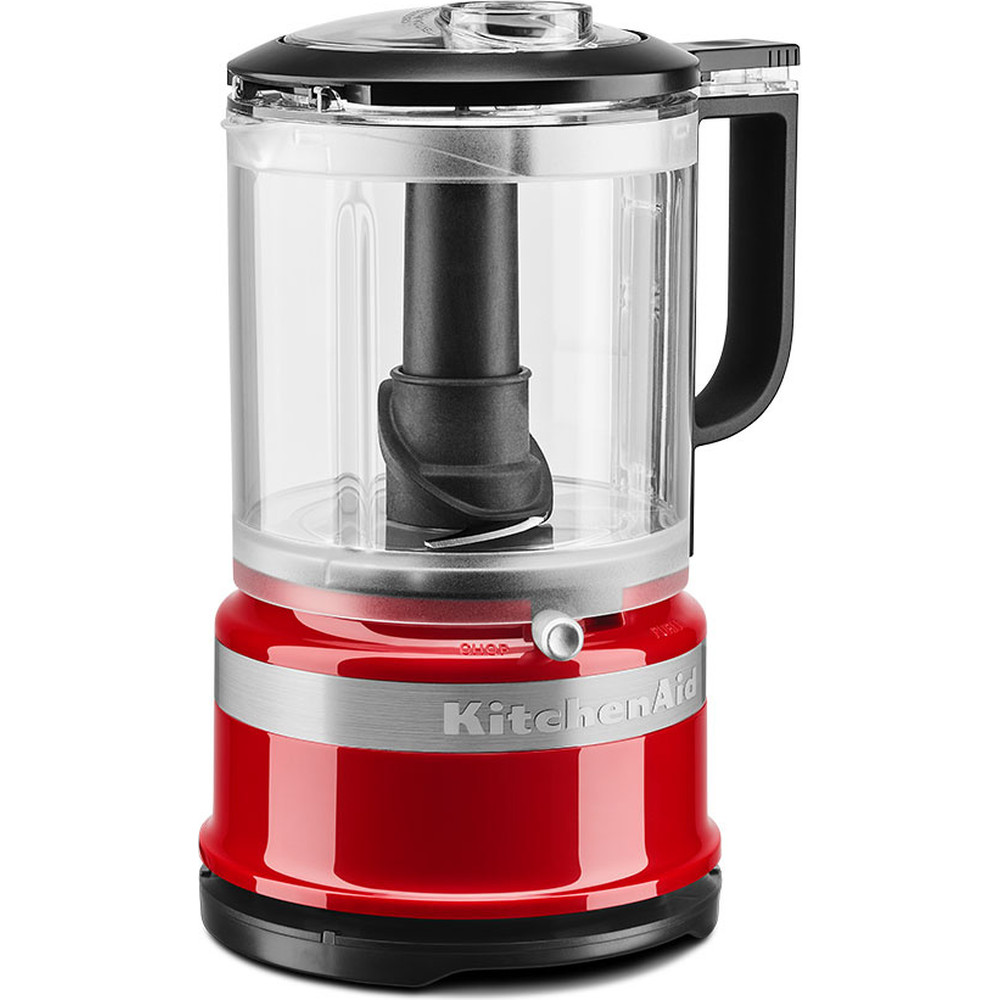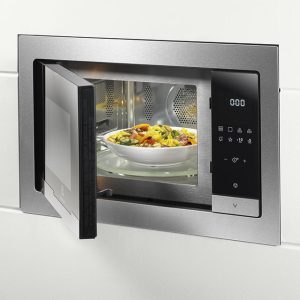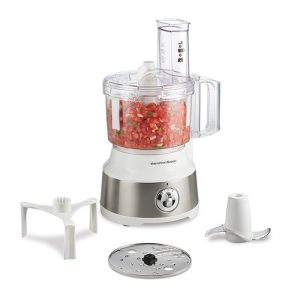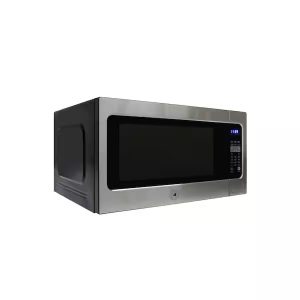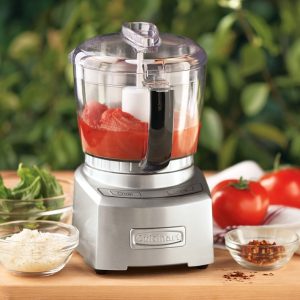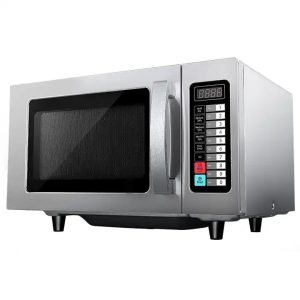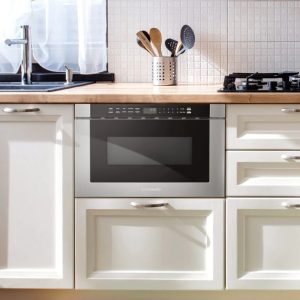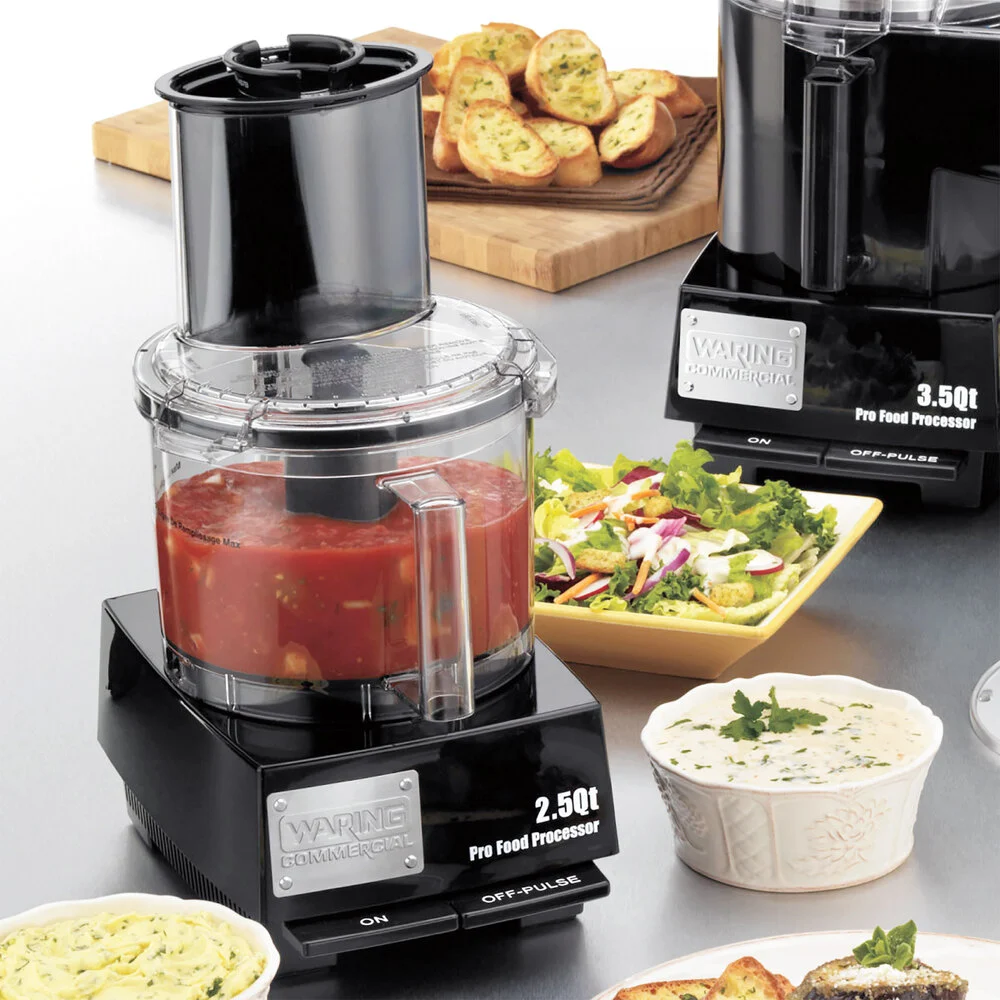
When it comes to kitchen appliances, the sheer variety of options designed to simplify your culinary tasks can be overwhelming. In the realm of essential gadgets, the debate of food chopper vs food processor often comes up. While these two devices might appear similar at first glance, they cater to different needs and come equipped with unique features, each offering its own set of benefits and drawbacks. This comprehensive guide will delve into the key differences between food choppers and food processors, helping you decide which appliance best suits your lifestyle and culinary preferences.
Understanding Food Choppers
What is a Food Chopper?
A food chopper is a compact, straightforward kitchen tool designed mainly for chopping vegetables, fruits, and nuts. Food choppers come in both manual and electric versions. The manual ones are generally hand-operated and require physical effort, while the electric models run with just the press of a button.
Features of Food Choppers
Food choppers have features that make them highly suitable for smaller chopping tasks:
- Size and Portability: One of the biggest selling points of food choppers is their size. They are compact and portable, making them perfect for small kitchens or those with limited counter space.
- Ease of Use: These devices are generally easy to use, involving simple mechanical operations or a single button to start chopping.
- Convenience: Cleaning a food chopper is usually quick and straightforward, given its smaller parts and design.
- Affordability: Food choppers are typically more budget-friendly compared to food processors, making them an excellent option for those looking to save money.
Advantages of Food Choppers
- Quick Preparation: Ideal for making salsas, salads, and other dishes quickly.
- Reduced Waste: Their smaller size often makes it easier to chop smaller amounts, thus minimizing food waste.
- Precision: Allows for more precise chopping for smaller dishes.
- Low Maintenance: Few parts mean less cleaning time required.
Drawbacks of Food Choppers
- Limited Capacity: Not suitable for larger meal preparations.
- Limited Functions: Primarily good only for chopping; can’t perform tasks like kneading dough or shredding cheese.
- Manual Effort: For manual versions, you need to exert physical effort, which can be tiring.
- Not Versatile: Generally less versatile compared to a food processor.
Understanding Food Processors
What is a Food Processor?
A food processor is a more advanced kitchen appliance that can handle a variety of preparation tasks, ranging from chopping and slicing to grinding and pureeing. These appliances are electrically powered and come with an array of interchangeable blades and attachments, making them incredibly versatile.
Features of Food Processors
Food processors come loaded with features aimed at multi-functionality and efficiency:
- Versatility: With multiple blades and attachments, a food processor can handle tasks like slicing, grating, shredding, and even kneading dough.
- High Capacity: Food processors come in various sizes, but even the smaller versions usually offer greater capacity compared to food choppers.
- Powerful Motor: These appliances are designed with powerful motors that can handle rugged tasks.
- Multi-Speed Options: Many food processors come with different speed settings, allowing for precise control over the chopping, slicing, and pureeing processes.
Advantages of Food Processors
- Versatile Use: From chopping vegetables to kneading dough for bread, a food processor is a multi-functional tool that can handle complex tasks with ease.
- Time Efficiency: Saves considerable time, particularly when preparing meals for large groups.
- High Capacity: Can process larger quantities of food in one go.
- Power and Speed: More powerful motors make quick work of tough tasks.
- Customization: With various blade types and settings, you can achieve the texture and consistency you desire for any recipe.
Drawbacks of Food Processors
- Size and Storage: Food processors can be bulky and require ample storage space.
- Cost: Generally more expensive than food choppers, making them less appealing for budget-conscious consumers.
- Complexity: Learning to use all the attachments and settings can be daunting initially.
- Cleaning: More components mean more parts to clean and maintain.
Key Comparisons: Food Chopper vs. Food Processor
Functionality
While both devices perform chopping tasks, a food processor offers much more functionality, including slicing, grating, kneading, and pureeing. In contrast, food choppers are primarily limited to chopping.
Speed and Efficiency
A food processor, equipped with a powerful motor, can accomplish tasks much more quickly than a manual or even an electric food chopper. This makes it the better option for time-sensitive meal preparations.
Size and Portability
Food choppers win when it comes to size and portability. They are compact, lightweight, and easy to store, making them ideal for small kitchens or cooking on the go. Food processors, on the other hand, tend to be bulkier and require more storage space.
Capacity
Food processors generally offer higher capacity, making them better suited for large-scale cooking. Food choppers are more appropriate for smaller, quick chopping tasks.
Versatility
The versatility of a food processor far exceeds that of a food chopper. With different blades and settings, a food processor can serve multiple roles in your kitchen. Food choppers are limited to chopping and hence less versatile.
Ease of Use
Food choppers, especially the manual ones, are simpler to operate with fewer components. Food processors come with various attachments and settings, which could be overwhelming for beginners but beneficial in the long run.
Price
If budget is a concern, food choppers, particularly manual ones, are more economical. Food processors can be a hefty investment, but they offer multi-functional capabilities that can justify the cost.
 Use Cases: When to Choose Which
Use Cases: When to Choose Which
When to Choose a Food Chopper
- Quick, Small Tasks: Perfect for quick chopping jobs like making a small batch of salsa or dicing an onion.
- Limited Storage: If counter space and storage are at a premium, a food chopper is better suited to your kitchen.
- Budget-Friendly: Ideal for those who don’t want to invest heavily in kitchen appliances.
- Portability: Easier to carry and use in various settings, even outside of the kitchen.
When to Choose a Food Processor
- Versatile Cooking: If you frequently prepare a wide variety of dishes requiring different preparation methods.
- Larger Meals: Ideal for larger families or those who often host gatherings, as it can handle bigger quantities.
- Time Efficiency: If you need to save time on meal prep, a food processor can be a massive time-saver.
- Complex Recipes: For recipes requiring multiple preparation tasks, a food processor is indispensable.
Comparing the Cleaning Processes: food chopper vs food processor
Ease of Disassembly
- Food Choppers: Usually have fewer parts, making disassembly quicker and easier.
- Food Processors: Generally have more components which might require more time and attention during disassembly.
Ease of Washing
- Food Choppers: With simpler designs, they usually have fewer crevices, making them easier to wash. The parts are typically smaller and might fit more easily in a dishwasher.
- Food Processors: More components mean more washing. Some parts, like the pusher and the lid with the feeding tube, can accumulate food residue, requiring more scrubbing.
Ease of Drying
- Food Choppers: Fewer parts mean drying takes less time. Blades need extra care to prevent rusting.
- Food Processors: Due to the larger number of parts and complexities, ensuring each component is fully dry can take more effort.
Conclusion
Food Chopper vs. Food Processor: Detailed Comparison
When deciding between a food chopper and a food processor, understanding your own cooking habits, kitchen space, and budget will be essential. Food choppers are excellent for small, quick tasks, require less space, and are easier on the wallet. On the other hand, food processors offer a range of functionalities, are efficient for large-scale food prep, and can accomplish complex tasks, albeit with a higher cost and larger footprint.
Both appliances have their own unique advantages and limitations. You may even find that having both in your kitchen offers the ideal setup, allowing you to use each for its strengths. Choose wisely, and your cooking experience will become more efficient and enjoyable.
